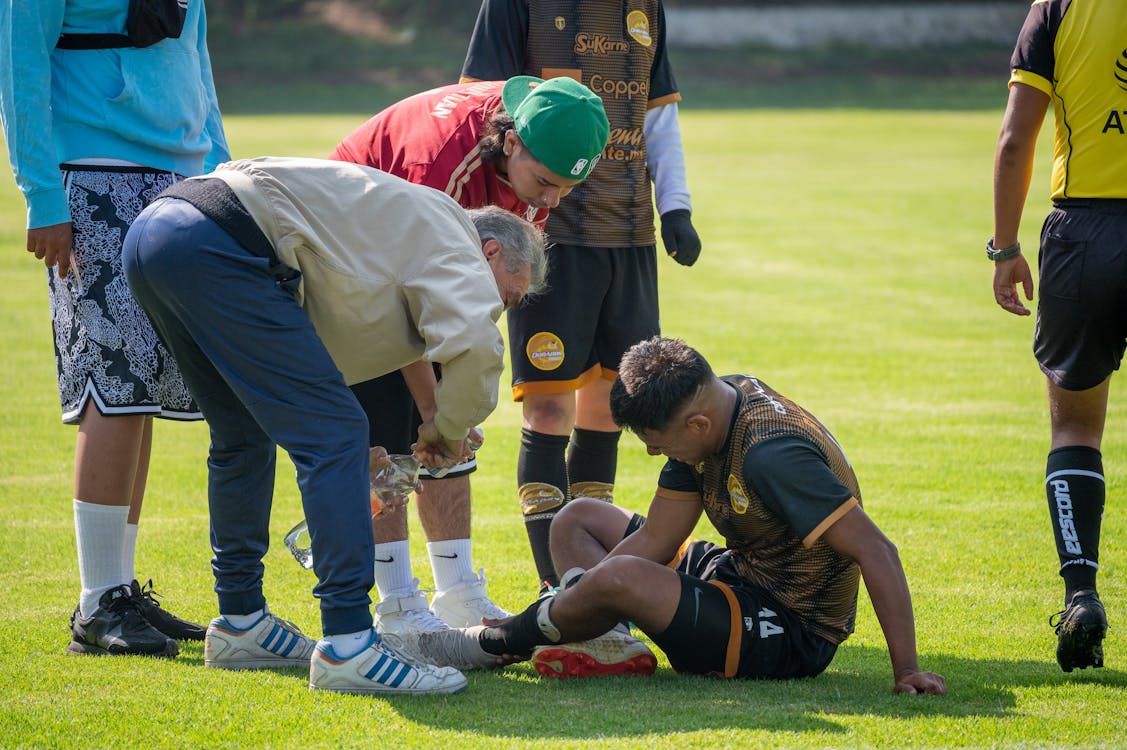
Sports are a source of joy, passion, and camaraderie, but they also carry inherent risks. Sports injuries range in severity from mild sprains to serious concussions, which may ruin lives and careers.
Amidst the psychological and bodily damage, it’s imperative to comprehend your legal rights and available channels of appeal. We want to provide some clarity on navigating the legal system around sports-related injuries in this guide.
Understanding Liability
In sports, liability often hinges on the concept of negligence. According to Justia, a person or organization that violates a reasonable duty of care might be held accountable for any harm that results. For example, if a coach pushes an athlete to perform beyond their capabilities, resulting in injury, the coach could be deemed negligent.
However, participants also assume a certain level of risk when engaging in sports activities, which can impact liability assessments. Understanding the nuances of liability is crucial for determining legal responsibility and pursuing appropriate compensation in sports-related injury cases.
Seeking Medical Attention
Prompt medical attention is critical following a sports-related injury to assess its severity and initiate appropriate treatment. Medical documentation plays a vital role in the legal process, providing evidence of the injury’s extent and impact.
According to Verywell Health, a sports physician should be seen if discomfort from an acute injury does not go away right away. This might happen when you roll your ankle and are unable to put weight on it. Another example is when you collide with someone or something and are immobile with your arm.
At times, the start of discomfort is delayed. This is especially typical in cases of overuse injuries. After a sport, a joint may feel a bit painful at first, but the discomfort gets worse over the next several hours. When pressure is applied to the region, tenderness can serve as a crucial warning of a catastrophic injury.
Following healthcare professionals’ recommendations can demonstrate diligence in mitigating damages, bolstering the injured party’s case. Failure to seek timely medical attention or adhere to treatment plans could potentially weaken a legal claim. This underscores the importance of prioritizing health and recovery.
Local Laws and Jurisdictional Nuances
The legal landscape for sports-related injuries can vary significantly depending on jurisdictional factors and local regulations. For instance, some states, like Missouri, have specific statutes governing liability in recreational sports settings, while others rely on common law principles. In Missouri, the state’s “assumption of risk” doctrine may limit liability for injuries sustained during certain sports activities.
As noted by Forbes, defendants proving your acknowledgment of injury risk might restrict or halt your ability to claim damages in personal injury cases. Essentially, if it’s proven that you knowingly exposed yourself to the risk, you might not be eligible to receive compensation for your losses.
However, in urban areas like St. Louis, additional municipal ordinances may dictate safety standards for sports facilities and equipment, impacting liability assessments. For individuals navigating the complexities of sports-related injury claims in the city, consulting St. Louis personal injury lawyers is crucial.
According to TorHoerman Law, a knowledgeable local attorney can provide tailored guidance and representation to help injured parties navigate the legal process effectively.
Communicating with Stakeholders
Clear and timely communication with relevant stakeholders is essential throughout the legal process following a sports-related injury. Coaches, team officials, and medical personnel should be promptly informed of any incidents to ensure proper documentation and care.
Additionally, maintaining open lines of communication with insurance companies and legal representatives can facilitate the claims process and negotiations. Effective communication helps establish transparency and trust, fostering a cooperative approach to resolving the injury claim.
Exploring Legal Remedies
When pursuing legal remedies for sports-related injuries, various options may be available depending on the circumstances. Personal injury claims can seek compensation for damages resulting from negligence or wrongful conduct.
Workers’ compensation may apply if the injury occurred during employment-related activities, such as practice or competition. Premises liability lawsuits could be viable if inadequate facilities or unsafe conditions contributed to the injury.
Exploring these legal avenues with the guidance of experienced legal counsel ensures that injured parties pursue the most appropriate course of action.
FAQs
What is a liability in a case of injury?
Liability in a case of injury refers to legal responsibility for the harm caused. It involves determining who is at fault for the injury and may involve factors like negligence, duty of care, and breach of duty.
What is delayed pain after a sports injury?
Delayed pain after a sports injury refers to discomfort or soreness that develops gradually over time following physical activity. It may not be immediately noticeable but can emerge hours or even days after the injury, indicating underlying tissue damage or inflammation requiring attention.
What is the doctrine of voluntary assumption of risk?
The doctrine of voluntary assumption of risk is a legal principle wherein individuals knowingly consent to the dangers associated with a particular activity. By voluntarily engaging in the activity despite its inherent risks, they may waive their right to hold others liable for resulting injuries.
In conclusion, the landscape of legal support for sports-related injuries is multifaceted and demands careful navigation. From understanding liability and seeking timely medical attention to considering jurisdictional nuances, this guide provides essential insights.
Effective communication with stakeholders and exploration of legal remedies with experienced counsel are pivotal steps in seeking appropriate recourse. Prioritizing health and safety while remaining vigilant about legal rights ensures a fair and equitable resolution for all parties involved.


